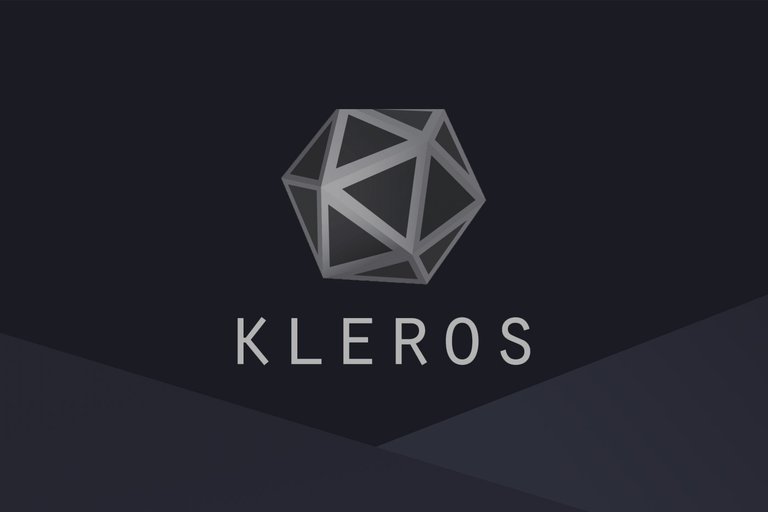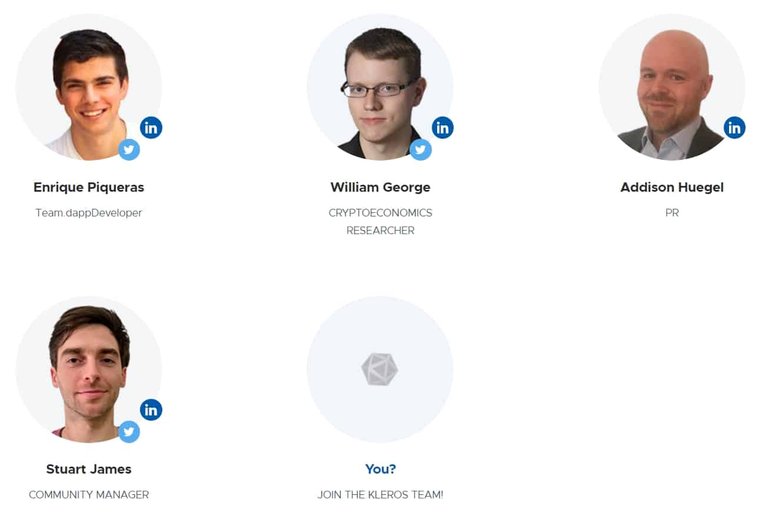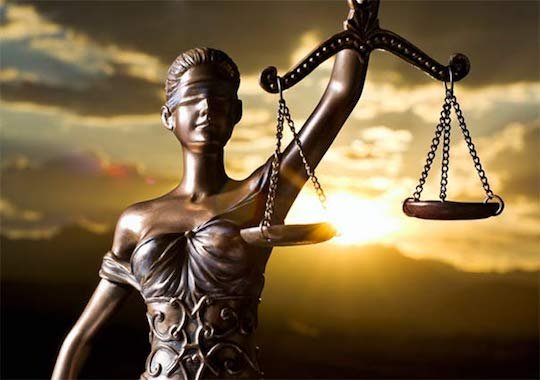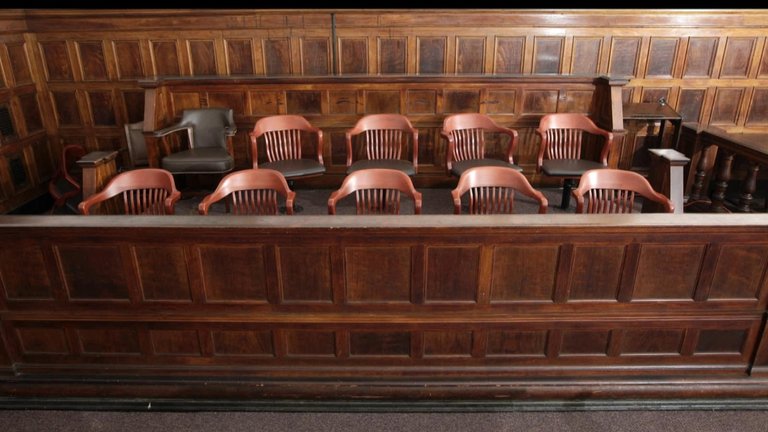The technology of block chains is changing the parameters of society as we know it today. Since the appearance of Bitcoin in 2009, blockchain technology has allowed the development of new and better technologies with a large number of applications ranging from cryptocurrencies to Artificial Intelligence technologies.
Perhaps these technologies are the innovations that have attracted the most investments in recent years. Billions of dollars move around the world every day in cryptoactives and this trend continues to increase. Of the large number of transactions carried out, between 3 and 5% end in disputes, a total of more than 700 million in 2015 alone (Katsh and Rabinovich-Einy 2017: 67).
These large amounts of money in dispute in decentralized systems that do not have regulatory entities for transactions or any kind of external control is what makes a platform for resolving disputes, which provides a real-time response to all disputes without import the amount of the lawsuit.

What is Kleros?
It is a dispute resolution system based on blockchain technology. It is a platform where users who need to resolve disputes are connected to a group of specialists who serve as a jury by casting votes. These specialists have the necessary skills to evaluate cases and solve them fairly. The resolution uses blockchain technology to solve each case quickly, safely and easily.

How does Kleros work?
The process carried out by Kleros for the resolution of disputes is constituted by the following stages:
- Integration of Kleros in the Smart Contract
- Securing the evidence
- Selection of the jury
- Analysis
- Voting
- Appeal
- Redistribution of tokens

Integration of Kleros in the Smart Contract
Klerosis a voluntary system. Users who want to use Kleros for the resolution of their disputes must include a clause within their intelligent contracts awarding this responsibility. Users must decide the number of juries and which sub-court will be responsible for resolving the dispute if there is one.

Source Each sub-court has different fees. They vary depending on the complexity of the disputes and the number of juries available with the right skills to solve them. Kleros has several models of payment of fees: joint payment between the parties, one of the parties assumes the payment of the costs associated with the disputes or by means of insurance.

Securing the Evidence
Once a dispute has started, the parties will supply Kleros and this in turn to the selected juries all the material necessary to make decisions about the case. This information will be secured using asymmetric encryption. This will allow users to be assured that only assigned juries will have access to the case data for conflict resolution. Maintaining the confidentiality of the information provided by the parties in controversy is a priority for Kleros.

Selection of the jury
The selection of the jury requires two elements to be specified: the self-nomination of candidates and the realization of a drawing. The anonymity of the members of the jury is an essential condition to avoid retaliation and intimidation of any of the parties. For this reason, no member of the jury is obliged to identify himself.

Source Anyone can apply as a jury candidate in a sub-court by depositing a token called pinakion (PNK). This deposit represents the possibility of being chosen as a jury in a dispute. The greater the number of tokens activated by a user, the greater the probability that he will be chosen as a jury. The selection is made randomly among all the users who activated token in each sub-section specifically.
Candidates can not under any circumstances apply for a specific case. They can only apply for a sub-court where a lottery mechanism assigns the candidate to a specific case. This form of selection acts as protection against bribes and system manipulation.

Analysis and voting
Users drawn as jurors receive access to the evidence. Each one has to analyze it and give its verdict. Each sub-section has its own parameters regarding the time and procedure that the juries will have to make a decision. This will depend on the complexity of the dispute, the voting options available and the possibility of communicating with the parties.
After the lapse of time has elapsed, each one of the juries will proceed to issue their verdict and consequent vote. Each of them is obliged to provide a justification that supports the decision within the dispute. The winning option is the median vote of the juries. The voting options must be pre-established in the intelligent contract. Each option voted has associated the terms and conditions with which the dispute would be resolved.

Appeal
Kleros, like the ordinary judicial system, allows parties to appeal the jury's decision if they wish. This allows either party to make the dispute decide again in a new instance.
Appeal fees = new number of juries ⋅ jury fee - rate already paid
The appeal instance will have double plus one of the previous number of juries. Due to the increase in the number of juries, the appeal fees must be paid. In theory, users can infinitely appeal the decisions of the sub-courts.
However, in practice, the exponential increase in the cost of appeals eliminates this possibility. Additionally, the juries have the obligation to give a justification on the vote cast. This seeks that the parties can understand the analysis behind the decision made and this avoids the need to resort to the appeal unnecessarily.

Redistribution of tokens
Once the dispute is concluded, the redistribution of deposited tokens will be proceeded where each jury will win or lose tokens based on the coherence of their vote with that of the majority.The redistribution is based on the concept developed Thomas Schelling: Schelling Point. Schelling called focal point to a solution that individuals tend to use to coordinate their behavior in the absence of communication or when the parties do not trust each other.
The jurors had access to the same evidence having the right incentives, according to the concept of focal point everyone should reach a similar verdict on the same case. According to the above, the juries that their votes did not coincide with those of the rest were not properly qualified to make decisions in the area or did not perform an appropriate analysis.
The jurors will receive as an incentive a payment for arbitration fees, as compensation for the time invested in analyzing evidence and the work done to issue a verdict and vote. All juries will receive the same compensation for arbitration. Additionally, the system will redistribute the pinakion from the juries that voted incoherently to those of coherent vote. This guarantees that the juries will postulate in the sub-courts correctly and that they invest the time and effort necessary to determine the solution to the dispute.

Benefits of Kleros in resolving disputes

The current dispute resolution systems are slow, extremely expensive and unreliable to give answers in real time. The popularization of cryptocurrencies has allowed to expand markets and business possibilities but this has brought with it innumerable disputes for breach of some of the parts of the conditions offered.
Why use Kleros is the best option for the resolution of the willing? The people (natural or legal) will obtain multiple benefits in the resolution of disputes:
- Saving money. The cost associated with resolving the conflict using this platform is extremely low. The companies save the payment of lawyers and all the additional costs associated with an ordinary trial.
- Tests to good protection. In a conventional trial, the parties would risk exposing sensitive information to support the allegations of the claim. The service of Kleros puts to good protection all the information of the case. Only the juries chosen by the platform will be allowed access to the information.
- Quick and effective solution. In many countries there is still no legal framework that allows the resolution of disputes arising from commercial transactions with blockchain technology. This makes judgments last long periods. Time in which they can not dispose of the disputed assets. Kleros allows the resolution of disputes in short periods allowing users to dispose of their resources quickly.

Kleros Team



Kleros Advisors

Kleros Partners


Watch the video for more information

Social media
- Kleros Website
- Kleros WhitePaper
- Kleros Medium
- Kleros YouTube
- Kleros Telegram
- Kleros Twitter
- Kleros Github
- Kleros Forums
Here is my Tweet about the contest
This is my entry for @originalworks contest
Kleros2018
klerostwitter










This post has been submitted for the @OriginalWorks Sponsored Writing Contest!
You can also follow @contestbot to be notified of future contests!